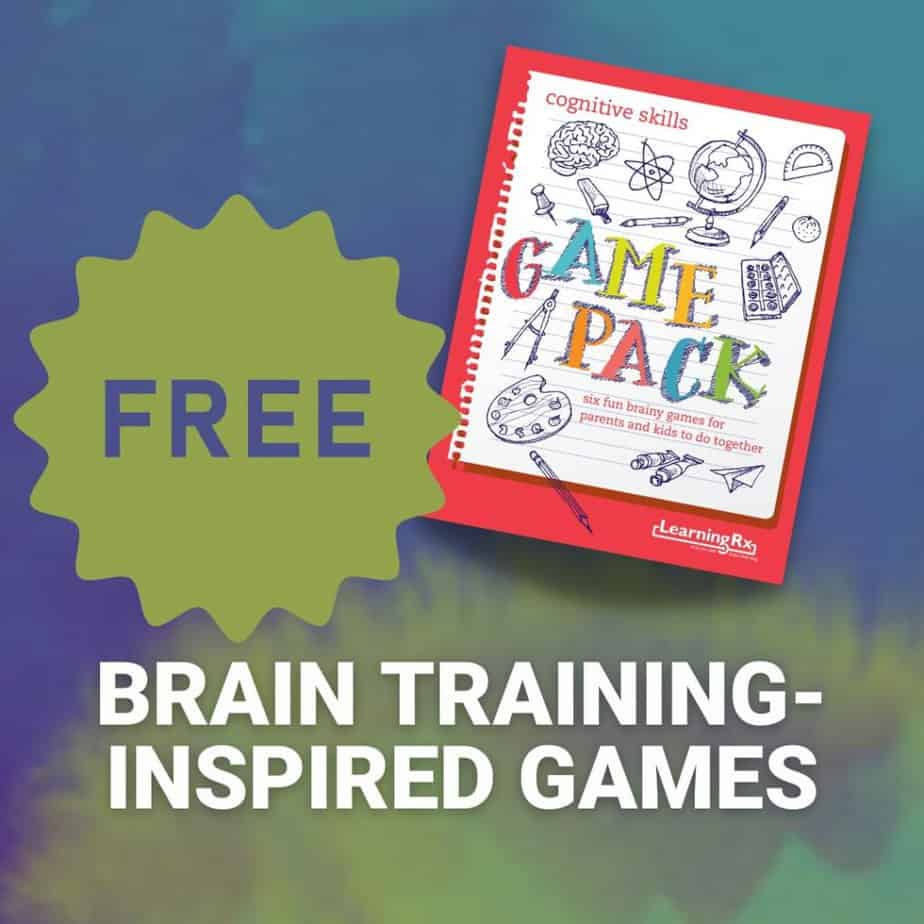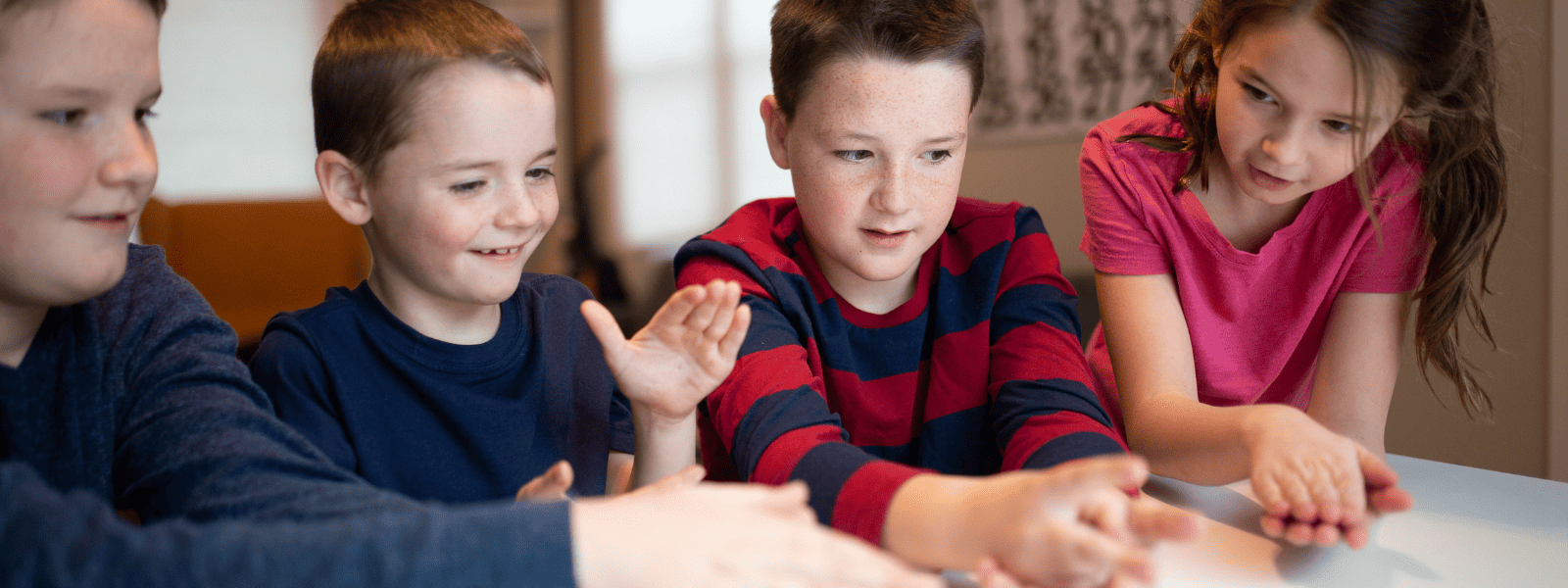5 Fun Cognitive Exercises for Kids That You Can Do at Home
Parents understand the importance of physical exercise for their children’s health, but what about mental fitness? Cognitive exercises play a crucial role in helping kids and teens develop essential thinking, learning, memory, attention, and reasoning skills. These underlying brain functions, collectively known as cognitive skills, are vital for success in school, work, and everyday life.
Click here to learn more about the implications of living with weak cognitive skills >>
If you’re looking for quick & easy ways to keep your child learning and growing at home, try one of these simple cognitive exercises:
Concentration
Skills Developed: Attention and Memory
Gather an assortment of interesting and recognizable household items (e.g., an ice cream scoop, a sock with dinosaurs, a can of carrots) and display them together on a tray or table for 30 seconds. Cover them with a towel and ask your child to recall as many items as they can. You can adjust the difficulty by adding more items, reducing the memorization time, or asking harder questions (like, “which was closer to the can: the sock or the spoon”?)
20 Questions
Skills Developed: Logic & Reasoning, Memory
This classic guessing game is perfect for car rides, waiting rooms, or road trips. Think of an object or living creature and let your child ask up to 20 yes-or-no questions to narrow down their guess. Encourage them to use strategic questions like, “Is it alive?” or “Would it fit in our car?”
Allowing your child to be both the guesser and the answer-er will build different types of strategy and reasoning skills. It’ll also allow you to model effective reasoning when it’s your turn!
Here’s a fun card game version that’s easy to throw in a backpack for kids 8+! >>
Going on an (Alphabet) Picnic
Skills Developed: Memory and Visual Processing
A timeless game that can be played anywhere, including in the car or while waiting in line. Starting with the letter ‘A’, each player takes turns naming something they would bring on a picnic. The next player must recall all the items in order and add their own, starting with the next letter of the alphabet. The game continues until someone forgets an item.
For example, it looks like this:
- Player 1: Apple
- Player 2: Apple, Basket
- Player 3: Apple, Basket, Cake
- Player 1: Apple, Basket, Cake, Dishes
- Etc.
Simon Says
Skills Developed: Attention, Processing Speed, Auditory Processing
This game provides both physical activity and an opportunity for your child to practice following instructions. To make it an extra challenge, push them with a rapid series of commands. You can even incorporate some of the actions you’re saying to try to distract them (especially if they weren’t something “Simon said”). This game can help exercise your child’s listening skills, focus, and processing speed.
Change a Letter
Skills Developed: Sound Blending, Segmenting, Visual Processing
Select a simple word to spell aloud, and have the next player change one letter to create a new word. Keep the game going until someone can’t come up with a unique word. For example, “S-A-N-D” could become “S-E-N-D” or “H-A-N-D.” For an added challenge, allow letters to be rearranged as well.
This is a great game for early elementary students who are working on word groups, spelling, and reading!
Get More Brain Training Games to Try at Home in This FREE Game Pack!

Fashioned after some of our in-center procedures, the games in this Game Pack allow you to have more cognitive exercise tools to try with your kids. With activities that target attention, memory, processing speed, and more, you’ll find something for everyone in your home to try!







